QuestionHello,
My question is about our little daschund, Dooly. He is 1.5 years old and we have had him for 1 year. We also have a lab, Max who is 11. I have had Max since he was 5 weeks old- he is a wonderful, very passive dog. Dooly has always snarled at Max or any visiting dogs when they are in the house and anywhere near his toys. Recently he has been getting worse and is now lunging at Max trying to bite his face when Max simply walks past a toy that is lying on the floor. Max has one toy that he loves and never bothers with any of Doolys toys. I just don't know what to do. We have a squirt bottle so I squirt him and say NO in a firm voice but he ignores me and continues to growl. We have also tried putting him in the bathroom for a period of time. I feel so bad because Max isn't doing anything wrong and he seems that he is afraid and uncomfortable around Dooly. We love both are dogs and just want them to both be happy together. They go to the park 3 times a day and get lots of exercise in the pool. They were both to the vet 2 weeks ago for an exam and both are healthy. Thank you in advance for your help, Lisa
AnswerHi Lisa,
Thank you for writing to me about the tension between Dooly and Max. I understand that this must be very upsetting for you to watch as you love both of them dearly. Thank you for your patience in waiting for my response.
What's going on is a vying for top dog between the younger dog of the pack and the older, more established one. Dooly is also engaging in a behavior called Resource Guarding.
Resource Guarding
There are dogs who growl and snap when approached while chewing a toy, eating or lying on a favorite spot. These dogs are guarding what they consider to be a valuable resource. That's why this type of behavior can be called "resource guarding."
Possible Causes: Some dogs are prone to this because of temperament tendencies. Others have learned to be this way.
For example, if he has been "attacked" by humans after he drops something such as a shoe. How, then, can he prevent your wrath? Dropping it didn't work. Some dogs will then choose aggression in an attempt to back you off. This is painfully familiar to many owners.
This behavior can be a part of a general confusion about who leads and who follows in the home.
Recommendations:
First of all, remove anything he may protect. If you can't remove the item (such as a bed or couch), block access to it by closing a door or putting up a gate.
Keep him on lead in the house so you can more easily control him.
Teach him to "Leave It" in a positive, fun way. Do NOT make this into a battle. Make him think this command is an opportunity for a reward, not a chance to lock horns with you.
Always start teaching this command with boring objects so that praise and treats will be the obvious choice. Reward spitting things out.
Much of this sort of aggression is man made. People get angry when their dog takes things, then fail to give him a way to please them. They create a situation where, once something is in their dog's mouth, there is no way for the dog to win. This can force the dog to start defending himself.
Here's the rule: Once something is in your dog's mouth, it is TOO LATE to teach him not to take it. The only thing you can teach him now is to spit it out promptly. Therefore, reward spitting it out. Take then Give.
Early on, practice "Out" with your pup. Walk up when he is chewing a toy. Say "Out" and take the toy. Praise him for his brilliance. Give him a treat. Return the toy and leave him alone.
A few weeks of this once or twice a day and your dog will want you to come and take him toys.
Ignore him. Do not look at or speak to him unless he is working for you and even then, keep attention short, sweet and intense after which you ignore him again. You want him to want your attention, not constantly be getting more of it then he desires.
Leave him wanting more.
Redirect him.
If he is pawing you then keep him on lead and work his demanding self. Every time he paws you have him "Sit, down, Sit, down -- come, stay, OK" -- with little praise. He may well decide that a nap is a better idea.
Teach him to move out of the way. This will help with his understanding that you lead and he follows. If it is safe to do, simply shuffle your feet into him (no kicking) until he moves then praise him. Or leave a lead on him and guide out of the way then praise.
He owns nothing! He has no "favorite" chair or toys that are "his" -- everything in the house is yours.
If he is protective over anything, a bowl or a toy, remove it until his attitude has improved.
All of his time must be spent on the floor. The higher up he is in the room, the higher up he is in his head. Nope, his place is on the floor.
Teach him to get off things on command. Always praise him cheerfully for obeying.
If need be, close off rooms and/or leave a lead on him so you can manage him more easily. Always praise him cheerfully for obeying --- that is important!
Confine him daily. Daily crating is a generally good routine for this sort of dog and keeps him out of trouble in many ways. Even if you are home with him, crate him for several hours every day. [Note: many behaviorists advise that it can be counter-productive to crate a dog more than 5 hours a day over the long term.]
Increase his exercise. This is a great deal of change for him. Exercise will help relieve stress and release excess energy.
Be sure to play games that promote cooperation and control -- skip tug-of-war, wrestling and chasing after him. We do NOT recommend: Going to battle over a squeaky toy. Your dog, no matter how small, can injure you. When a dog shows he is ready to battle a human, we already know that he is misinformed and confused. We need to straighten out that confusion prior to discussing that unwanted aggression.
If you attack him for threatening to attack you, you may well escalate his aggression. And, even if you "win" he may decide to fight sooner and harder next time. What he needs is education, not attack.
Anytime -- ANYTIME -- your dog threatens you, hands-on help from a qualified professional is the best next step. Aggression is complicated and, if it isn't dealt with quickly, can get worse. In the end, it can lead to the death of your dog assuredly as any disease.
Common Mistakes:
* Thinking it is OK for him to have a chair or a toy that is "his."
* Assuming he won't bite.
* Avoiding the problem rather than dealing with it.
* Leaving toys that you know he is protective over out because "he likes them so much."
* Thinking this behavior will get better with time.
* Allowing denial of the problem to put other people at risk.
Further Advice: Seek any and all help, including from your veterinarian.
When Dooly had his exam at the vet did it include a thyroid panel? If not, this is recommended to make sure that there is no imbalance in his thyroid, which can cause aggression.
While you are redirecting Dooly's behavior, it is imperative that you protect Max. Your first boy is a senior. He cannot defend himself against Dooly and needs to be protected. Until you have a handle on Dooly's behavior, I would not allow both dogs to interact without supervision.
It is also essential that you brush up on alpha work, becoming the leader of the pack. The leader sets the ton for what is and isn't acceptable to the other pack members. If Dooly thinks he is in charge it will escalate his aggression.
I have put a reading list together for you that will help you to understand dog psychology on a deeper level and to address some of the issues you are facing:
Culture Clash by Jean Donaldson
Dogs are from Neptune by Jean Donaldson
The Cautious Canine by Patricia B. McConnell (desensitization)
Your Shy Dog: Turning Your Terrified Dog into a Terrific Pet by Deborah Wood
Shoot the Dog!: The New Art of Teaching and Training by Karen Pryor
Getting Started: Clicker Training for Dogs (Getting Started) by Karen Pryor
How to Teach a New Dog Old Tricks by Ian Dunbar
Doctor Dunbar's Good Little Dog Book by Ian Dunbar
Best Regards,
Shelley Davis

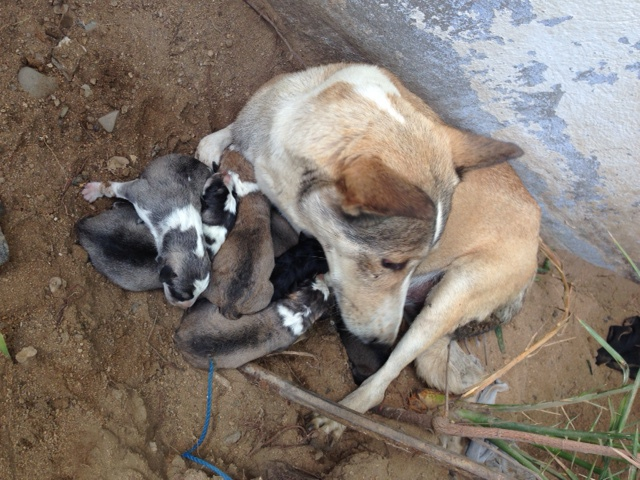 Whats the dog type?
Question
1 2
Dear ma`am,
Me and my friend
Whats the dog type?
Question
1 2
Dear ma`am,
Me and my friend
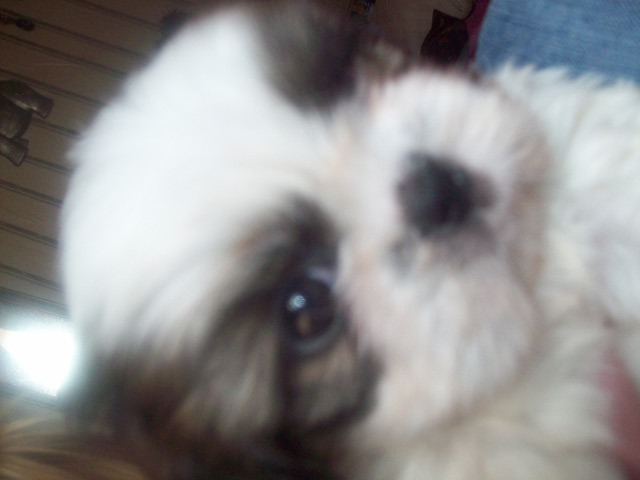 8wk old pup biting
Question
pebbles
hi i wonder if u can help me my
8wk old pup biting
Question
pebbles
hi i wonder if u can help me my
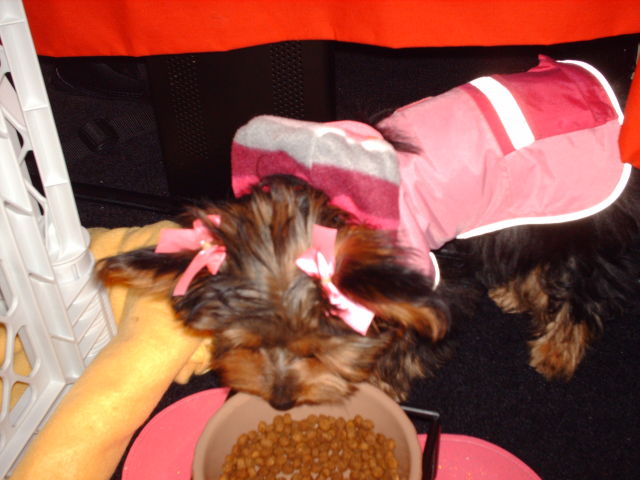 about babygirl my 14 week yorkie
Question
babygirl brooklyn
i do no whats going on with
about babygirl my 14 week yorkie
Question
babygirl brooklyn
i do no whats going on with
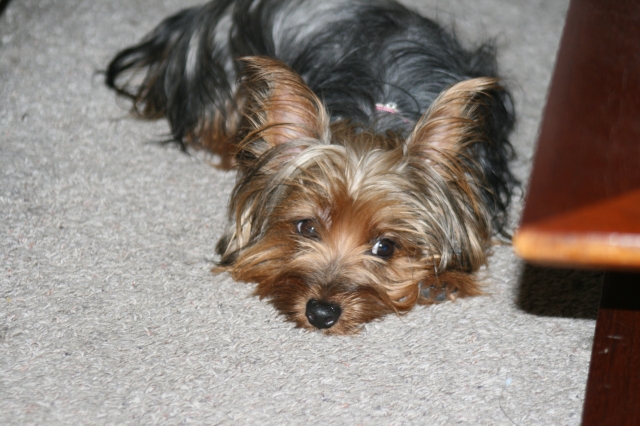 Agression towards kids
Question
Holly Daze
I have a 2.5yo Silky Terrier. She i
Agression towards kids
Question
Holly Daze
I have a 2.5yo Silky Terrier. She i
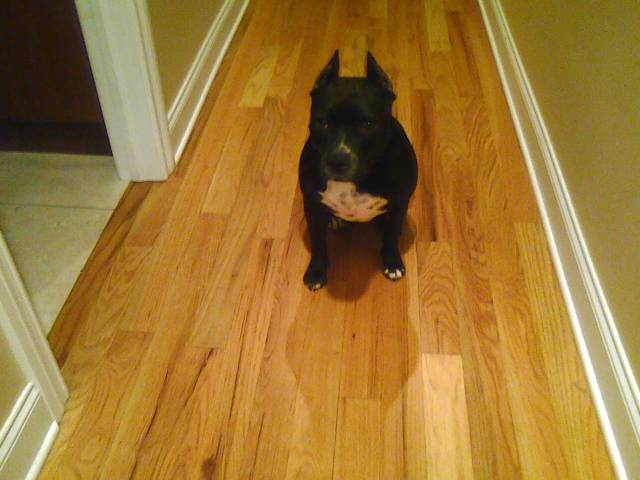 AmStaff Terrier
QuestionMy dog
QUESTION: I have a 2 1/2 year old
AmStaff Terrier
QuestionMy dog
QUESTION: I have a 2 1/2 year old